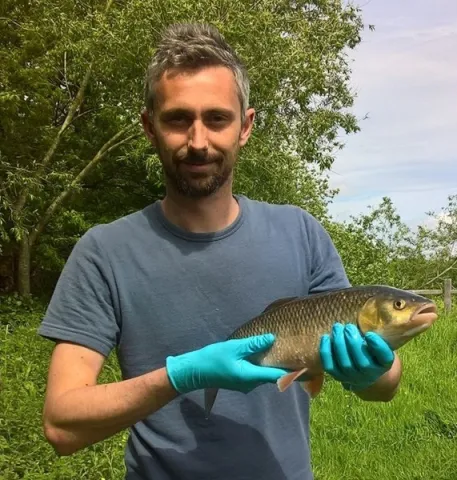About the project
The world has undergone wide-scale urbanisation in recent decades, and the percentage of people living in cities is predicted to grow from 30% in 1950 to 68% by 2050. Ubiquitous with urbanisation is artificial light at night (ALAN, also referred to as light pollution), which is considered one of the most pervasive forms of environmental alteration. More than 80% of the world’s population now live under artificially illuminated skies, and both the extent and brightness of the Earth’s artificially lit surface continues to increase.
Although artificial light is convenient for modern society, recent research has documented wide-scale unintended ecological impacts across a range of taxa. However, there remains a general bias towards terrestrial organisms, with comparatively little on impacts to aquatic environments, particularly freshwater ecosystems. This is despite many cities developing around rivers and more than 50% of the world’s population living within 3 km of a freshwater body.
The high frequency with which cities are co-located with freshwater environments means fish that are of social, economic and/ or environmental importance are likely to encounter artificially lit areas. However, the true extent to which aquatic environments are exposed to ALAN remains unclear, as does our understanding of the impacts on ecologically important behaviours of fish (such as times of peak activity, foraging, predator avoidance, collective movement and migration).
This project will map the extent to which freshwater ecosystems are exposed to ALAN, identify overlap between ALAN “hotspots” and freshwater biodiversity (e.g. fish migration routes), and utilise Hydraulics Laboratories at the University of Southampton to assess the impact of ALAN on the behaviour of fish species of interest.
This project will improve understanding of a major environmental stressor and cause of global change and have important implications for the design and management of lighting around rivers in urban areas. Such information will help society progress towards smarter and more sustainable cities.

